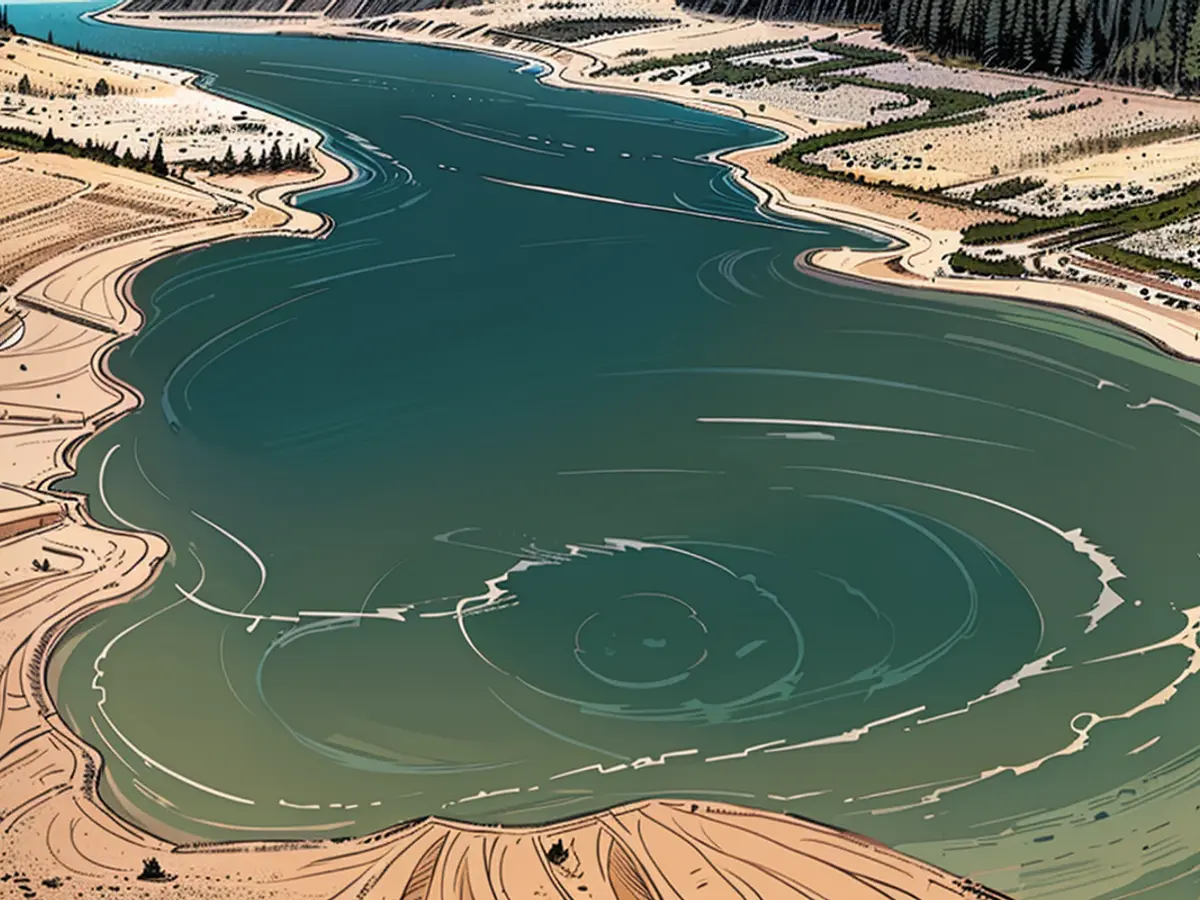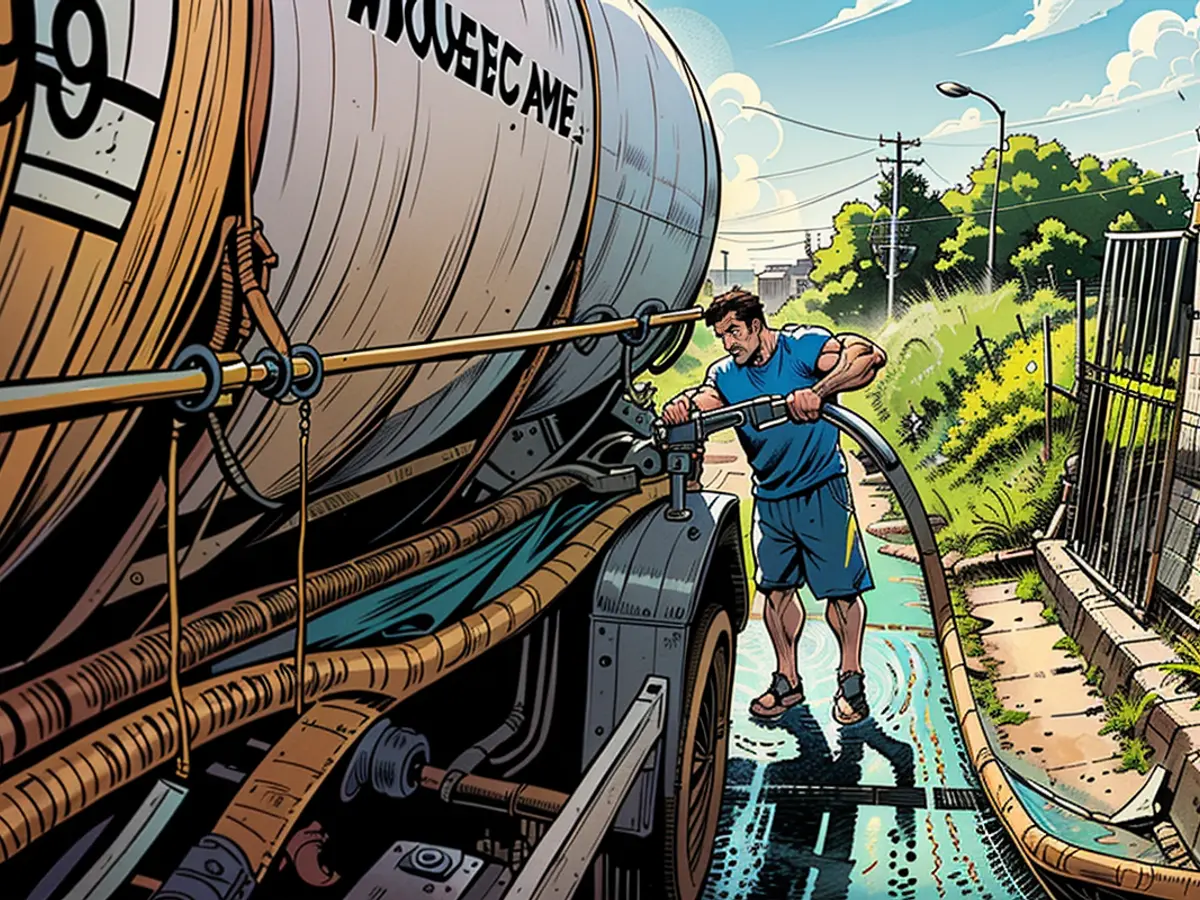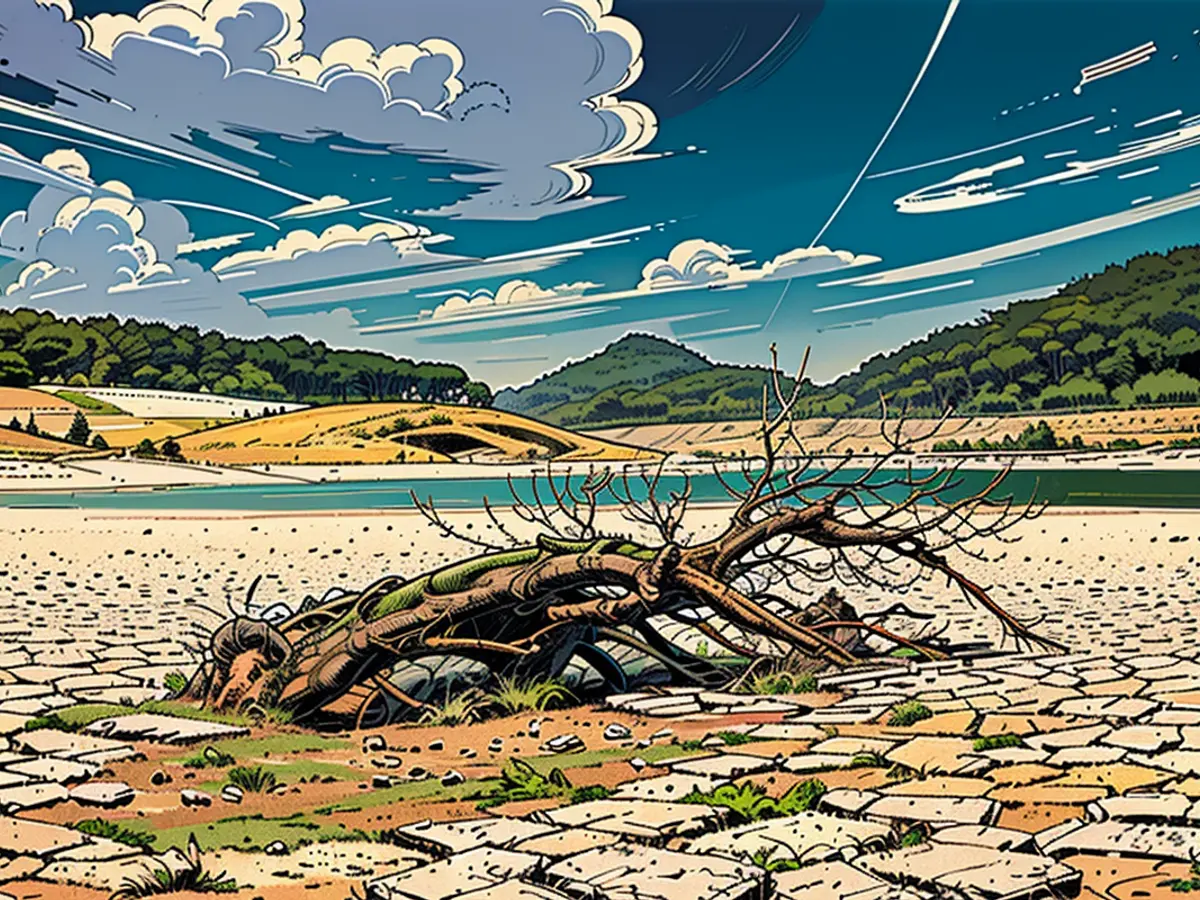Sicilians are drought experts - but it's getting harder
The Sicilians are accustomed to drought and water scarcity. They manage it so well that the many tourists there don't notice it. But now the island is experiencing its worst drought in more than two decades.
Lakes in Sicily are dried up and fields are scorched by the heat. The year has been almost rainless. Nevertheless, the swimming pools of the hotels are filled and the fountains in Agrigento's famous archaeological park continue to flow. That's because water still flows abundantly for tourists on the Italian island.
Like many Mediterranean regions, people in Sicily are used to long periods without rain, but climate change has made the weather more unpredictable, and droughts can be longer and more frequent. The Sicilians cope with it as they have for decades: they store as much water as they can in cisterns, underground water tanks, and use water trucks for delivery. They manage it so well that visitors don't notice. But this year the drought has become so severe that the challenges for the locals are increasing.
The local water authority has rationed the precious liquid for almost a million residents to get through the summer. And a few days ago, for the first time, a tanker from the Italian Navy arrived with 12 million liters for the most affected residents.
But the residents of Agrigento are among the most resilient in Italy when it comes to drought. They continue to run their businesses, hotels, bed and breakfasts, and households without skipping showers, neglecting gardens, or closing swimming pools. "No one can handle water scarcity better than southern Sicilians," says Salvatore Cocina, head of the local civil protection. He has the difficult task of coordinating what happens with the little water the island still has.
Tourists shouldn't notice
Scarcity is nothing new, as the southern terrain of Sicily doesn't hold much water and the aqueducts are leaky. The region is also prone to drought periods, especially in the summer. Most residents have private cisterns that can hold at least 1000 liters. There are numerous large plastic tanks on the roofs of the city, and just as many in cellars and underground.

Despite the water crisis, tourists continue to flock to the beautiful beaches of southern Sicily and queue to see the remains of ancient Greek colonies. Gianluca, an Italian visitor who only gave his first name, "hasn't experienced any problems with drought," and at his hotel, he reports, "they told me they have their own reserves, their cisterns." The so-called Valley of the Temples, with its archaeological attractions, which attracted more than a million tourists last year, is also not affected by water scarcity, as it has been prioritized in supply.
The affected residents are facing unusually difficult conditions. According to the regional civil protection authority, 2024 has so far been the driest year in more than two decades. The Lago Fanaco, which supplies water to the province of Agrigento during an average rainy season - from September to April - usually holds up to 18 million cubic meters of water. This year in April, it was already less than two million cubic meters, and now the reservoir is almost completely dry.
In May, the government in Rome declared a drought emergency and allocated 20 million euros for the purchase of water tankers and the drilling of new wells. Currently, temperatures in southern Sicily are two degrees above the average between 1991 and 2020, according to the Climate Shift Index developed by the environmental organization Climate Central. This means that water is evaporating faster. "If it doesn't rain in September, we will have to tap into critical reserves, including wells and aquifers, which will drop to critical levels, not just our lakes," says Cocina.
The phone of Salvatore Di Maria, the owner and driver of the main fleet of water tankers in the area, is ringing constantly. A recent call on a hot day illustrates the severity of the situation. He received a call from a holiday resort while filling one of his shiny blue water tanks at a public water station for a customer. "I need 12,000 liters of water," the voice on the other end said. "There's a waiting list of 10 to 15 days," Di Maria replied.
Everyone is asking him for water. Everyone wants to ensure they have a supply. Everyone wants a full cistern. Water tankers are the best way to deliver water directly to customers without losing it through leaks. They are seen everywhere on the winding roads - water tankers delivering water to priority areas. The local water company, Aica, has determined who gets priority, such as hospitals and generally sick and elderly people, as well as several key businesses like hotels.
"The drought was a wake-up call," says Aica President Settimio Cantone, looking at the leaking aqueducts. Now, thanks to state emergency funds, among other things, new wells are being dug and waterworks are being repaired. However, climate scientist Giulio Boccaletti from the Europe-Mediterranean Center for Climate Change looks anxiously at Sicily's future in the face of the impacts of global warming, such as rising temperatures and other extreme weather events. "What was extraordinary," he says, "is that this is the new normal."

Despite the severe drought, the water supply for tourists remains unaffected, with swimming pools still filled and fountains continuing to flow in Agrigento's archaeological park. However, the local water authority has had to ration water for over a million residents due to the current drought, which is the worst in over two decades.
Despite the leaky aqueducts and the region's tendency towards drought, private cisterns and large plastic tanks on rooftops and underground help many Sicilians store water for their needs. Nevertheless, the local water company, Aica, prioritizes water delivery to essential services, hospitals, and key businesses like hotels, utilizing water tankers for efficient delivery.






